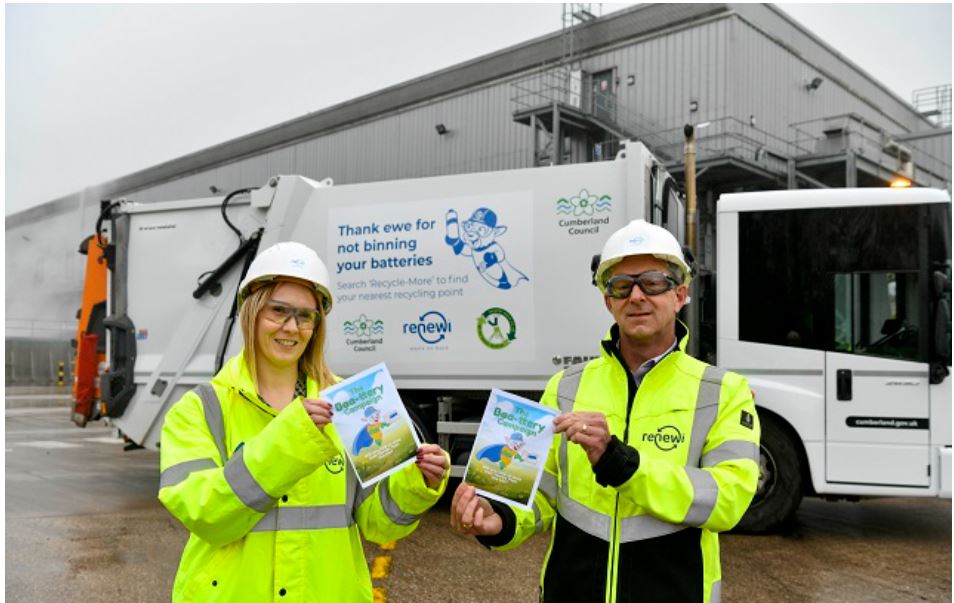The level of the UKs battery recycling progress has been cast into doubt, with an industry expert claiming that a discrepancy in the definition of portable batteries has seen the industry go backwards since 2008.
According to Michael Green, managing director of G&P Batteries, differences in interpretation between battery recyclers and producers over which lead acid batteries are classified as being portable or industrial could be skewing recently published battery recycling data. As a consequence, while lead acid battery recycling is going well in volume terms, the recycling of other batteries is less successful.
Under the terms of the European Unions Batteries Directive, batteries are categorised into three groups:
- automotive
- industrial
- portable
According to the UK governments interpretation of the Directive, a portable battery is any battery which is sealed, can be hand-carried without difficulty and is neither for automotive nor industrial purposes. Industrial batteries are defined as industrial if they have been designed exclusively for professional use.
Mr Green said: The producers of some lead acid batteries are saying that they are selling their batteries exclusively into industrial applications. But, the recycling sector which is sorting them has no way of knowing whether the application is industrial or portable. It is the application of the definition that is the route of the problem; producers are interpreting it in one way and recyclers in another.
This is important as lead acid batteries make up a high proportion of the batteries that are being recycled as portable despite the fact that lead-acid batteries are only a small percentage of the portable batteries placed onto the market.
This leads to questions over whether all battery producers are correctly obligated under the producer responsibility system, which requires battery producers to fund the collection of waste batteries for recycling.
‘When you take the portable lead acid batteries out of the collection data, there is a strong possibility we will recycle fewer portable batteries of the NiCad and other chemistries than in 2008’
Michael Green, G&P Batteries
While there are no specific targets for industrial and automotive batteries, the Batteries Directive sets rigid collection requirements for portable batteries, which currently stands at 25% and is set to rise to 45% by 2016.
Data
Quarterly data published earlier this year by the Environment Agency shows that for the first six months of 2012, the UK has achieved a collection rate of around 32%, meaning it is on course to meet its obligation under the Directive (see letsrecycle.com story).
Out of the 6,049 tonnes of portable waste batteries collected during the first six months of 2012, a total of 4,907 tonnes were lead acid batteries, despite this category making up only around 13% of the portable batteries placed onto the market during that time.
And, Mr Green has cast doubt over the perception that battery recycling in the UK is improving, claiming that the sector is meeting its recycling obligation through collecting disproportionately high levels of lead acid batteries.
He said: The great achievement in portable battery collection the UK has made so far in 2012 is based largely on the reporting of portable lead acid batteries which account for more than 80% of the batteries collected, when they only represent 10% of the portable batteries put on the market.
Alarmingly, when you take the portable lead acid batteries out of the collection data published by the EA, there is a strong possibility that in 2012 the UK will recycle fewer portable batteries of the NiCad and other chemistries than were recycled in 2008 a year before the regulations were introduced.
Collection
It is thought that lead acid batteries in general have had a high collection rate for some years, due to their high value, which according to Mr Green means that the portable lead acid batteries now being reported were being collected at similar levels before the regulations came in.
He added: By this measure, the UK arguably has gone backwards in recycling those batteries that the regulations were designed to increase, and has maintained its already good record in recycling lead acid batteries.
Mr Green is calling for the definition of industrial and portable batteries to be tightened, so that any batteries are likely to be classified as portable are included in a battery producers recycling obligation.
He said: We have proposed three or four options that could address the problem without having to change the regulations entirely and I hope these will be considered. All it needs is a definition that the waste industry and producers can both apply.
Dermot ORegan, environment & business adviser for the Environment Agency, said: The UK has made very good progress on portable battery collection and recycling since the regulations were introduced. The latest collection rates published in August this year show that we are on course to meet the 2012 recycling target of 25%. The Environment Agency is working closely with industry and Government to ensure the UK stays on track.









Subscribe for free